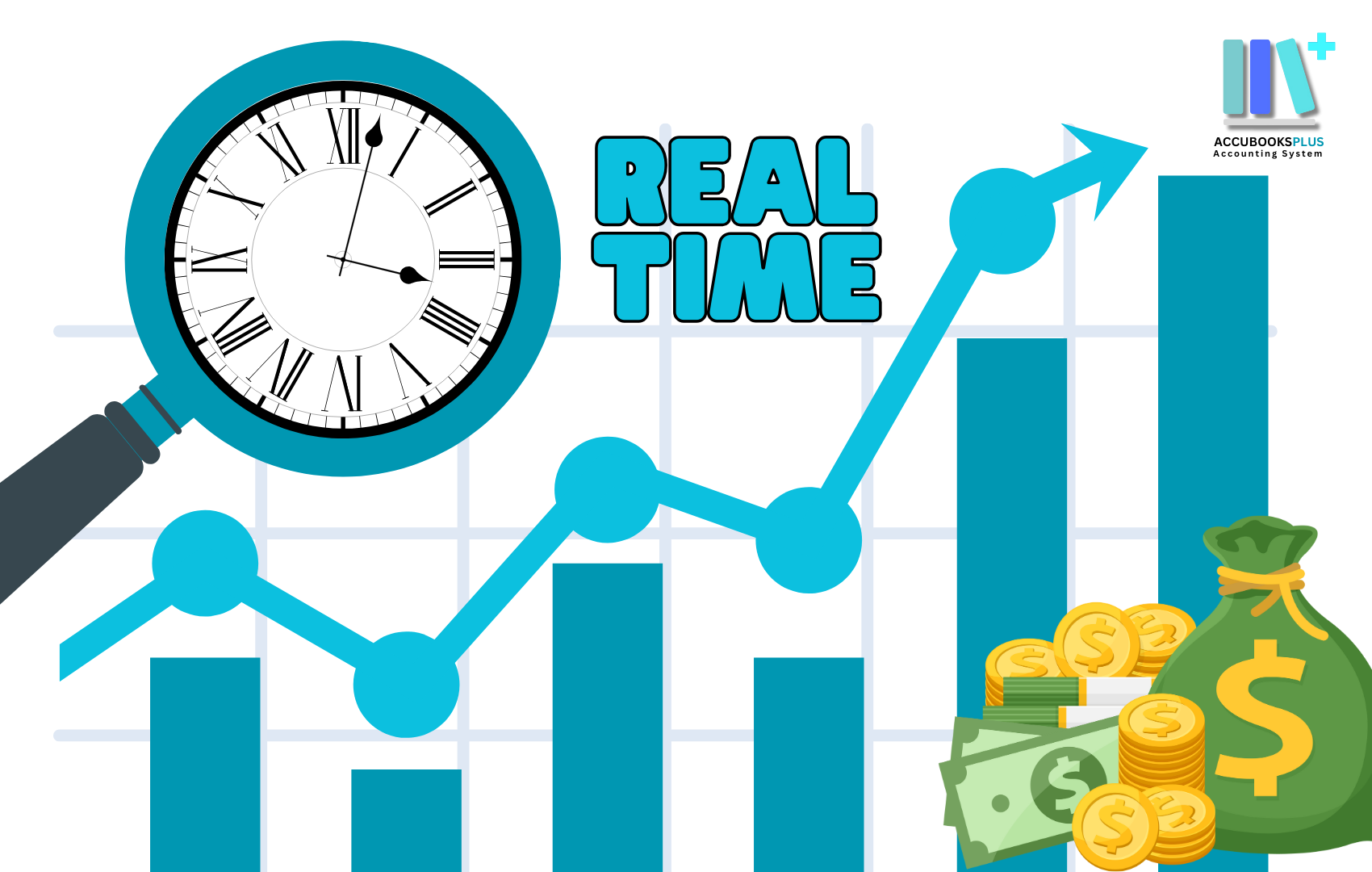Online accounting systems help businesses have access to real-time financial data in a number of ways:
1)Storing all financial data in a central location. All financial records, such as invoices, receipts, bank statements, and payroll data, are stored in one place. This can be a physical location, such as a server room, or a cloud-based location. When all financial data is stored in one place, it is easier to find the information you need when you need it. This can save time and effort, and it can also help to prevent errors. Cloud-based solutions are becoming increasingly popular in the Philippines as businesses of all sizes look for ways to save money and improve efficiency.
2)Providing real-time access to data from anywhere. Users can access data as soon as it is created or updated, regardless of their location. This can be done through a variety of methods, such as cloud computing, mobile devices, and the internet of things (IoT). Real-time access to data can help teams to collaborate more effectively by making it easier to share information and to track progress. For example, a construction company can use real-time data to track the progress of a project and to identify potential problems. With an online accounting system, users can access financial data from any device with an internet connection. This means that business owners and managers can stay up-to-date on their finances even when they're not in the office.
3)Automating financial tasks. Many online accounting systems can be used to automate many of the manual tasks involved in accounting, such as invoice processing, expense tracking, and bank reconciliation. This can save businesses time and money, and it can also help to reduce errors. Here are some of the specific financial tasks that can be automated by online accounting systems:
Invoice processing: Online accounting systems can automatically import invoices from email or other sources, and they can automatically match invoices to purchase orders and payments. This can save businesses a lot of time and effort, and it can also help to prevent errors.
Expense tracking: Online accounting systems can automatically track expenses by importing credit card statements and receipts. This can help businesses to stay on top of their spending and to identify areas where they can save money.
Bank reconciliation: Online accounting systems can automatically reconcile bank statements, which can help businesses to ensure that their records are accurate.
Payroll: Online accounting systems can automate payroll by calculating employee wages and deductions, and they can automatically generate paychecks and tax forms. This can save businesses time and money, and it can also help to reduce errors.
Financial reporting: Online accounting systems can generate financial reports, such as balance sheets and income statements. This can help businesses to track their financial performance and to make informed business decisions.
4)Generating reports and insights. Online accounting systems can provide businesses with the data and insights they need to make informed financial decisions. For example, businesses can use these systems to track their cash flow, identify areas where they can save money, and plan for future growth.
5)Integrating with other business systems. Many online accounting systems can integrate with other business systems, such as e-commerce platforms, customer relationship management (CRM) systems, and human resource (HR) systems. This allows businesses to share data between different systems, which can improve efficiency and productivity.
Here are some specific examples of how online accounting systems can help businesses have access to real-time financial data:
A restaurant can use an online accounting system to track sales, inventory, and expenses in real time. This information can be used to identify trends, make pricing decisions, and improve profitability.
A retail store can use an online accounting system to track customer orders, payments, and returns. This information can be used to improve customer service, identify fraud, and optimize inventory levels.
A construction company can use an online accounting system to track project costs, invoices, and payments. This information can be used to manage cash flow, avoid overspending, and ensure that projects are completed on time and within budget.
If you are looking for a way to improve your business's financial management, Accubooks Accounting System is a great option for your needs and requirements. For more information, you may visit us at https://plus.accubooksystem.com/ or message us through our Facebook page, Accubooks Accounting System. By providing real-time access to financial data, this system can help you make better decisions, save money, and grow your business.



-1748399375.png)

-1742456856.png)

 (19)-1723771883.png)
 (17)-1721953744.png)